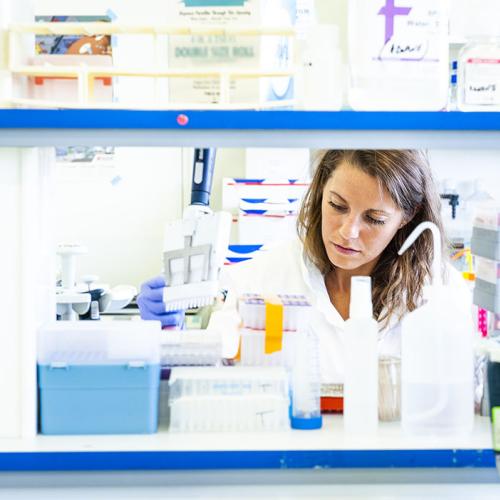Research in the BAP division

The division's mission and challenges
The mission of the Plant Biology and breeding (BAP) division is to produce academic and operational knowledge in the field of plant sciences. It focuses on the genetic and (eco)physiological determinism of the development, morphogenesis and reproduction of plants and canopies, in interaction with the biotic and abiotic environment. The conservation, characterisation, study and enhancement of genetic and epigenetic diversity are major activities of the department which, along with the production of knowledge and methodological developments, contribute to the production of innovative materials for cultivated plant species, thereby contributing to the sustainability and productivity of agricultural systems in the face of climate change and low input.
Most of research is focused on the plant and beyond. The current context of global change and societal expectations are raising issues for agriculture, food and the environment that require a systemic approach on larger scales.
Thematic fields
Functioning, dynamics and evolution of genomes
Study of plant genomes and their structural and functional dynamics on different time scales. This research provides the basis for developing functional genomics approaches, understanding evolutionary processes and the adaptation of plants to their environment.
Functioning of plants and plant communities in interaction with the environment
This involves studying the genetic, molecular and physiological determinants and mechanisms that govern the major functions of plants and their integration at different biological scales, from the cell to the whole plant and the stand in the environment. These studies help to improve crop productivity in the face of climate change, with low inputs, and to improve the quality and diversification of plant products.
Genetic diversity, adaptation and selection
The aim of this theme is to describe the genetic diversity of model or cultivated species and their relatives, to characterise the polymorphisms that shape phenotypes and their evolutionary dynamics. Knowledge and understanding of this diversity enables it to be exploited for the production of innovative genetic material using high-throughput biology, genome-wide selection approaches and biotechnologies.
The major scientific objectives of the BAP department
The division's research focuses on adapting cropping systems to variable environmental factors, with the aim of achieving multi-performance systems. Production objectives (quantity, quality, stability) and environmental benefits are linked to sustainable resource management, food safety and human/animal health. In line with the Institute's strategy and society's expectations, four major scientific objectives have been identified as priorities:
- Obj 1: To manage, describe and analyse genetic and epigenetic diversity in order to understand the functioning and adaptation of plants and plant communities
- Obj 2: Understand the response of plants and plant communities to climatic, nutrient and biotic stresses in order to adapt them to climate change in agroecological systems
- Obj 3: Identify, understand and mobilise plant functions and traits underlying services for human/animal and environmental health
- Obj 4: Improving plants and plant populations by using selection tools for innovative cropping systems
